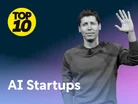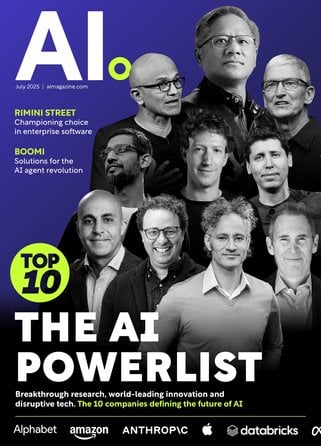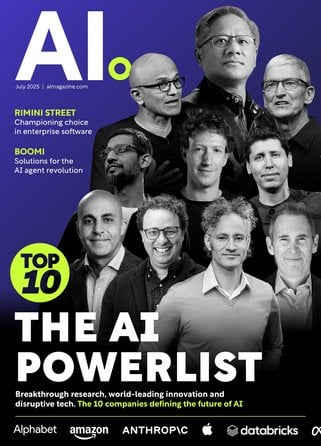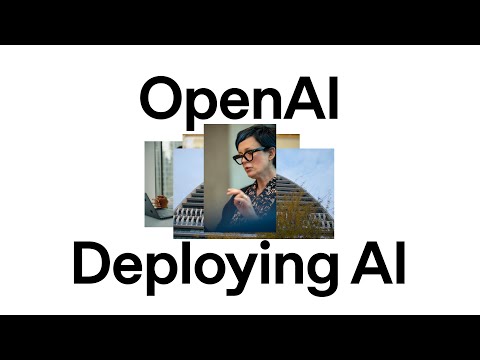Top 10: AI Startups
-
Published Time: 2025-09-03T09:34:55Z
List
AI Applications
Top 10: AI Startups
September 03, 2025
6 mins
Share

AI Magazine highlights some of the most inspiring AI startups across the world
AI startups have become some of the most influential leaders, covering breakthroughs across AGI, ML, Gen AI and more while addressing critical challenges
Company portals
OpenAI
Tags
AI startups have witnessed one of the steepest technical learning curves in history by innovating in such a volatile and new market.
Unlike the dot-com era’s broad-based internet plays, today’s AI leaders have carved out highly technical niches that require specialised expertise and substantial computational infrastructure investments.
The current funding environment shows this technical complexity.
Investors are backing companies with demonstrable model performance metrics rather than user growth alone.
While Scale AI’s US$14bn valuation from Meta demonstrates how data infrastructure has become as valuable as the algorithms themselves, Anthropic’s Constitutional AI framework commands premium pricing from enterprises prioritising regulatory compliance over raw capability.
AI Magazine spotlights the startups that have become influencers in the industry and how they have done it.
- Cohere
**Total funding:US$935mEmployees:500CEO:**Aidan Gomez
Aidan Gomez, CEO of Cohere | Credit: CNBC
What makes Cohere stand out is its transformer-based models, which enable enterprises to reduce the high costs typically associated with machine learning (ML) development by providing scalable, efficient and easy-to-integrate AI solutions.
The startup targets regulated industries including finance, healthcare, manufacturing and energy sectors.
It does this by focusing on compliance-ready solutions that address industry-specific regulatory requirements, allowing it to capture market share among risk-averse enterprises requiring auditable AI systems rather than general-purpose capabilities.
- DeepL
**Total funding:**US$415m
**Employees:**1,600
**CEO:**Jaroslaw ‘Jarek’ Kutylowski
Jaroslaw 'Jarek' Kutylowski, CEO of DeepL
DeepL is a German translation specialist that has carved out dominance in neural machine translation by consistently outperforming Google Translate in tone and context preservation.
Now, the company’s precision in maintaining contextual nuance has made it indispensable for legal, financial and technical translation where errors carry significant costs.
Its approach is unique because it demonstrates how specialised AI achieving near-human accuracy within specific domains can establish market leadership against technology giants through superior quality metrics.
- ElevenLabs
**Total funding:**US$281m
**Employees:**100
**CEO:**Mati Staniszewski
Mati Staniszewski, CEO of ElevenLabs
What makes this startup stand out is its browser-based text-to-speech software and voice cloning tools that generate new vocal styles from minimal audio samples.
Its full-stack approach around audio AI – incorporating specialised data pipelines, voice coaching teams and developer tools – has enabled consistent outperformance against larger competitors through focused excellence.
Now, the startup’s capabilities extend across 28 languages through products including “Projects” for long-form content and an AI Speech Classifier – and over one million users access the platform.
- Mistral AI
**Total funding:**US$1.1bn
**Employees:**200
**CEO:**Arthur Mensch
Arthur Mensch, CEO & Co-Founder of Mistral AI
Named after the Mediterranean wind, Mistral AI democratises frontier AI through open-source models adopted across finance, automotive and telecommunications sectors.
European institutions and global enterprises utilise its products including “Le Chat,” a conversational AI comparable to ChatGPT, plus API-accessible models through partner platforms.
The company’s open-source strategy is particularly noteworthy because it challenges proprietary model dominance whilst fostering community development and accelerating adoption by reducing access barriers.
This approach shows Europe’s growing role as an AI innovation hub distinct from US-centric development.
- Thinking Machines Lab
**Total funding:**US$2bn
**Employees:**30
**CEO:**Mira Murati
Mira Murati, CEO of Thinking Machines Lab
Former OpenAI Chief Technology Officer Mira Murati founded Thinking Machines Lab in February 2025, achieving a record-breaking US$2bn seed round at a US$12bn valuation by July.
Andreessen Horowitz, Nvidia and AMD led the funding round.
The company specialises in developing autonomous agentic AI systems for enterprise decision-making, emphasising human-AI collaboration and multimodal capabilities.
Furthermore, its recruitment includes numerous former OpenAI researchers and OpenAI co-founder John Schulman, highlighting the “OpenAI diaspora” trend where expertise from pioneering institutions seeds new ventures.
- Perplexity AI
**Total funding:**US$1.02bn
**Employees:**50
**CEO:**Aravind Srinivas
Aravind Srinivas, Co-Founder and CEO of Perplexity
Aravind Srinivas co-founded this AI-native search platform in August 2022, combining real-time web retrieval with conversational responses whilst providing verifiable citations.
Today, the startup’s monthly search queries exceed 780 million with projected annualised revenue reaching US$150m by mid-2025.
The company’s transparency focus, avoiding opaque algorithms through citation provision, addresses growing user demand for verifiable information sources – which is a big shift in information retrieval expectations during the Gen AI era.
- Scale AI
**Total funding:**US$15.9bn
**Employees:**1,200
**CEO:**Jason Droege
Jason Droege, Interim CEO at ScaleAI
Scale AI began with Alexandr Wang, who became the youngest self-made billionaire at 24.
Now, Alexandr has moved to be head of Mark Zuckerberg’s “superintelligence team” with the ambition of creating smarter-than-human AI.
In his place, Jason Droege, the company’s Strategy Chief Officer, is serving as interim CEO.
Proving the company’s worth, Meta invested US$14.3bn in Q2 2025 in the quarter’s largest funding deal, valuing Scale AI at nearly US$14bn.
Scale AI is known for providing high-quality data labelling and ML lifecycle management – and its clients include Microsoft, OpenAI and the US Army.
- xAI
**Total funding:**US$17.1bn
**Employees:**1,200
**CEO:**Elon Musk
Elon Musk, CEO of xAI | Credit: Getty
Elon Musk launched xAI in March 2023 with the mission to “understand the universe” through advanced artificial general intelligence (AGI) development.
The flagship product Grok integrates with X (formerly Twitter) as an AI chatbot designed for superior mathematical reasoning and real-time information access.
Additionally, xAI’s “Colossus” supercomputer in Memphis, Tennessee impressively runs one million GPUs, making it the world’s largest such facility.
However, recently, the platform has faced backlash from derogatory language, causing Linda Yaccarino, X’s previous CEO to step down.
- Anthropic
**Total funding:**US$14.3bn
**Employees:**1,097
**CEO:**Dario Amodei
Dario Amodei, CEO of Anthropic
What sets Anthropic apart from the rest is its Claude model that employs a “Constitutional AI” framework – embedding ethical guidelines directly into the system design.
Through this framework, the company’s “helpful, harmless and honest” approach addresses regulatory compliance and ethical deployment concerns, particularly among enterprises in sensitive industries.
This safety-first positioning also creates competitive advantage as AI risk awareness increases among potential clients.
Constitutional AI represents not merely ethical stance but strategic differentiation in a market increasingly focused on responsible deployment and regulatory compliance requirements.
- OpenAI
**Total funding:**US$57.9bn
**Employees:**280
**CEO:**Sam Altman
OpenAI has developed from a startup to one of the top AI companies in the world – achieving a US$300bn valuation through a US$40bn funding round led by SoftBank in 2025.
Sam Altman leads this AGI research laboratory pursuing AI systems whilst developing powerful foundation models including GPT-3 and ChatGPT.
Originally structured as a non-profit with capped-profit elements, OpenAI pioneered conversational AI tools that captured global attention and revolutionised human-computer interaction.
Now, the startup’s current development focuses on “reasoning models” functioning as personalised life assistants analysing conversations, emails and documents for tailored assistance.
However, this ambitious vision of documenting personal information creates tension between commercial goals and privacy – because it highlights the critical challenge of balancing technological progress with ethical safeguards and maintaining public trust.
Company Portals
OpenAI






Related Content


